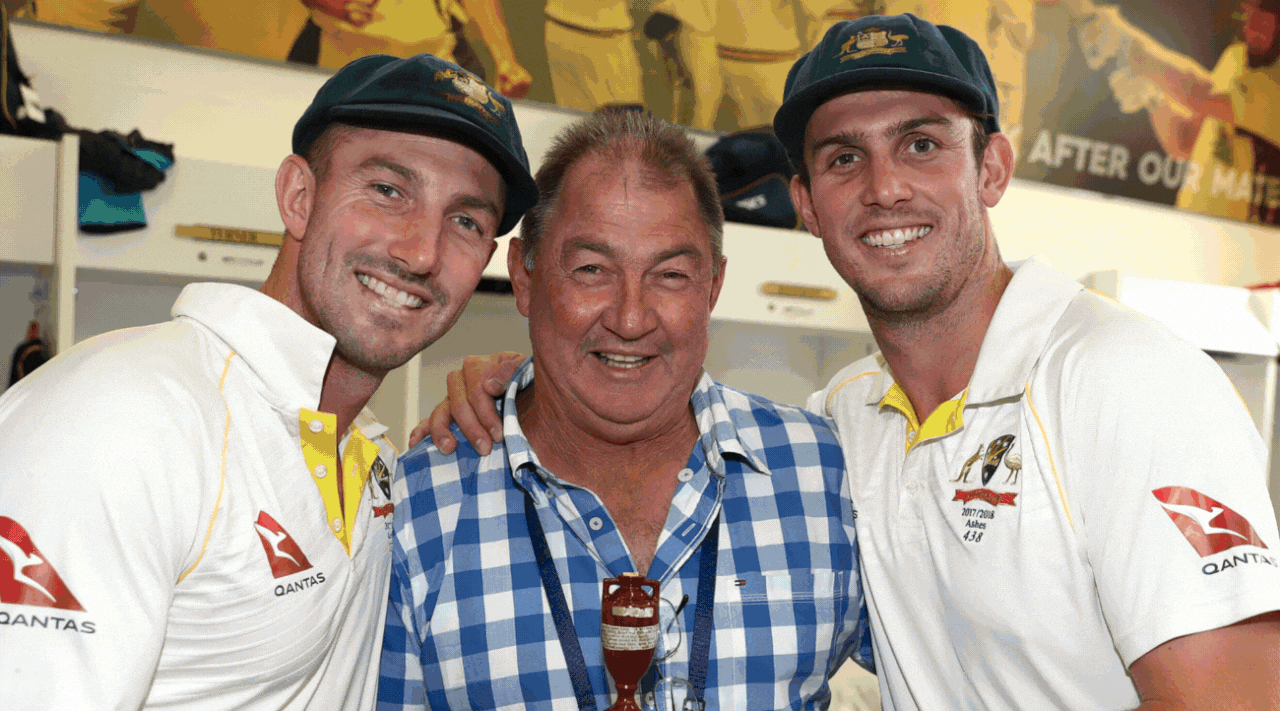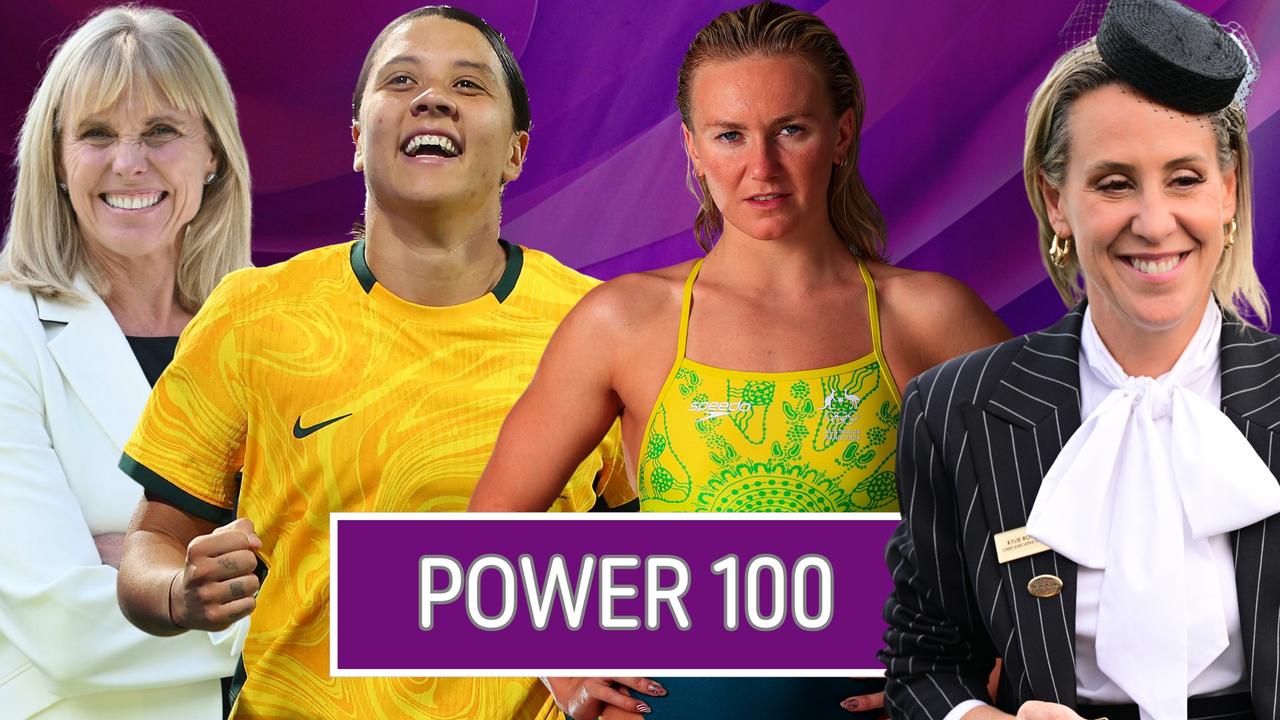‘Deek’, Raelene Boyle, Glynis Nunn and others were household names after our 1982 Games
OUR 1982 Brisbane Commonwealth Games were a stunning success and many of our athletes won gold. Grantlee Kieza takes a trip down memory lane with some of the biggest names and finds out what they’ve been up to since.
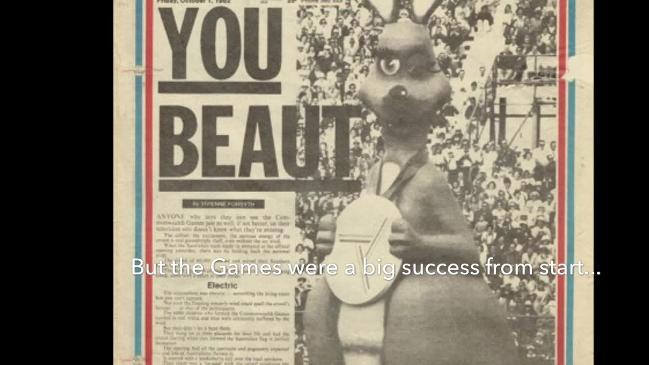
Comm Games
Don't miss out on the headlines from Comm Games. Followed categories will be added to My News.
- Jamaican sprint star Powell out of Games
- Games a ‘dream come true’ for Urquhart
- ‘Badman’ out to make Games statement
- Shy kid who swam her way into Aussie hearts
SOMETIMES, in the cool early mornings when Raelene Boyle is walking up the hills overlooking the Sunshine Coast, she pauses for breath and hears the echoes of a roaring crowd.
It was the same noise she tried to block out 36 years ago at Brisbane’s QE II Stadium as she focused on the last 400m of a long and winding career.
But 40,000 voices weren’t going to be silenced then and the memories can’t be silenced on her daily exercise routine as she tries to keep up with her golden retriever, Princess Charli of Buderim.
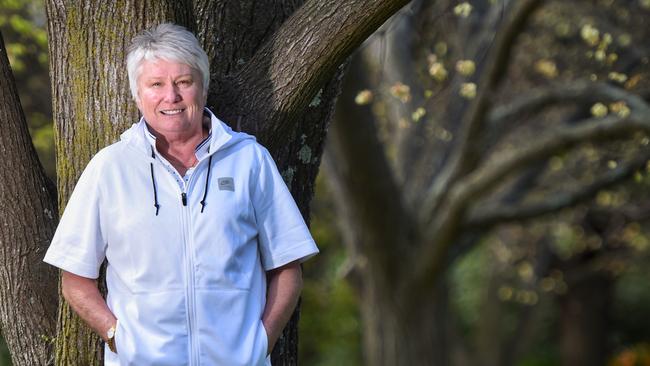
Raelene always knew Brisbane would be her last race, the end of a long journey that had seen her run at the Mexico City Olympics 14 years earlier as a 17-year-old and survive a rollercoaster career darkened by the 1972 Munich Olympics, when the East German state-sponsored drug program denied her two Olympic gold medals.
By the time the Brisbane Games came around Raelene’s body could no longer endure the workload needed to be among the world’s best sprinters so, like her hero Betty Cuthbert, who was in the QEII crowd cheering her that day, Raelene moved to the more gruelling 400m event, banking on heart to compensate for the waning of her explosive speed.
“I knew there had to be an end to my career and Brisbane was the perfect place to finish,” she tells Insight.
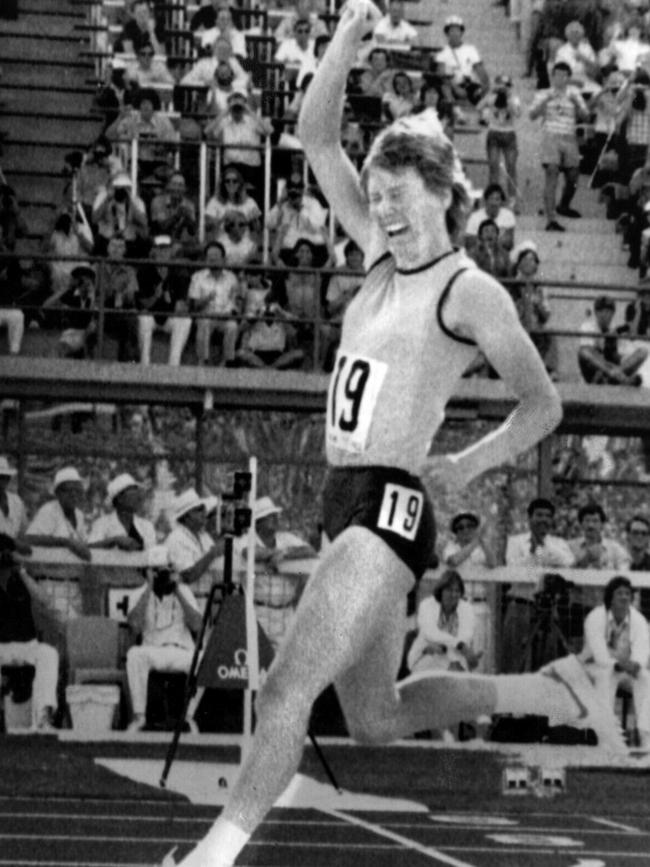
“There was a huge crowd and I tried hard to shut out the noise and stay in a focused place. My coach Ron Dewhurst was trying to get me to relax into what I was doing – to make sure the atmosphere and excitement didn’t force me to run too fast, too early.”
For a moment before the race, the crowd was hushed, holding its breath and, at the gun, their roar gave Raelene wings. Down the back straight, though, the words from Eye of the Tiger, the hit song from the Rocky III movie, bounced around in her head as she revelled in the thrill of the fight, rising up to the challenge of her rivals.
It was 2.40pm on October 4, 1982. The next day’s Courier-Mail said Raelene had won the 400m by “the length of a railway carriage” and that “every person there was standing, waving, cheering, crying and we literally pushed her home”.
Raelene left the cold of Melbourne for the Sunshine Coast during a five-day gap between chemotherapy and radiation treatment for breast cancer in 1996. She was diagnosed with ovarian cancer four years later. She’s been an advocate for the charity Pink Lady for the past two decades, helping other women fight the same battles.
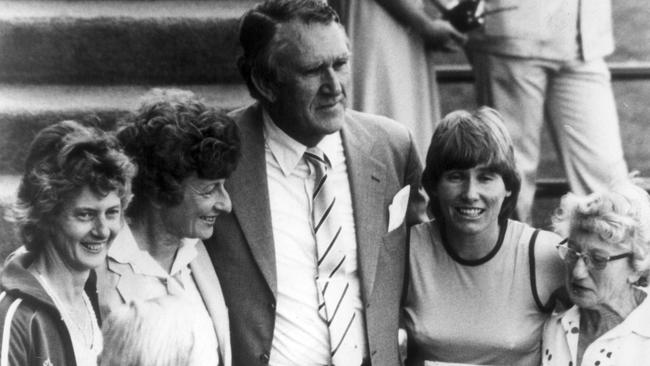
Raelene (pictured) worked in horticulture, and as a corporate ambassador, but eased back five years ago when diagnosed with epilepsy.
People still tell her that they saw her astonishing ’82 victory at QEII. Sometimes they’ll say they were out shopping and ran to the big windows at Myer’s to watch the race on the televisions in the display windows.
“That really touches me,” she says.
She exercises every day by walking Charli or hitting the treadmill in her local gym, but at 66 doesn’t run any more in case something breaks.
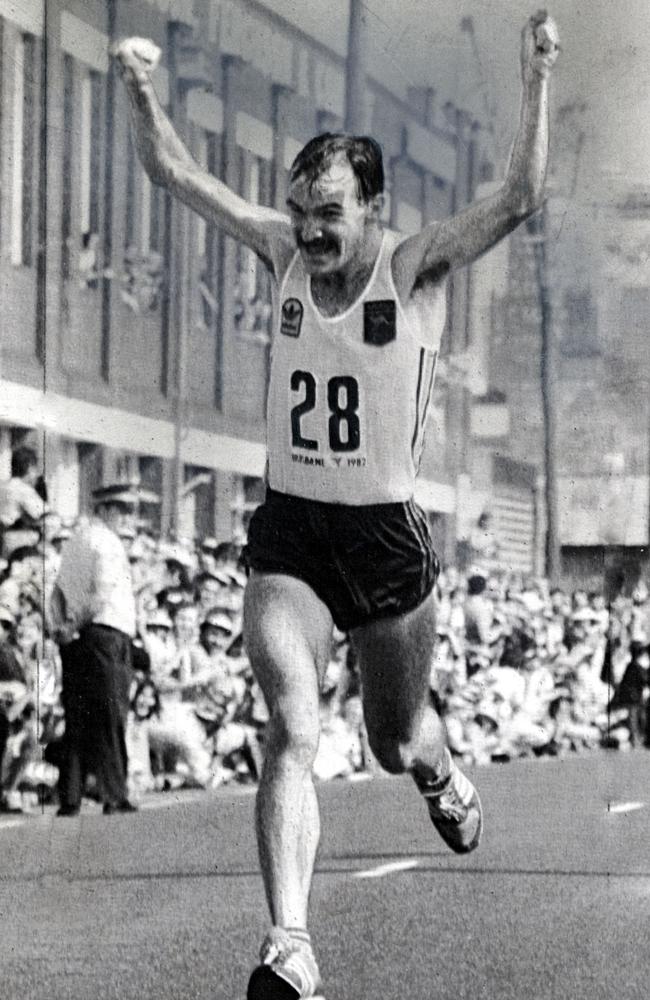
ROB de Castella, 61, has cut down his running, too, but in 1982 he brought Australia to a virtual standstill as he pelted down Coronation Drive in the Commonwealth Games marathon that started just after dawn.
“Deek” trailed the Tanzanian runners Juma Ikangaa and Gidamis Shahanga for much of the 42km event but started closing the gap with 5km left.
He passed Gidamis at the 38km mark, and soon caught Juma before the two duelled for the lead. Deek finally ran away to win by 80m.
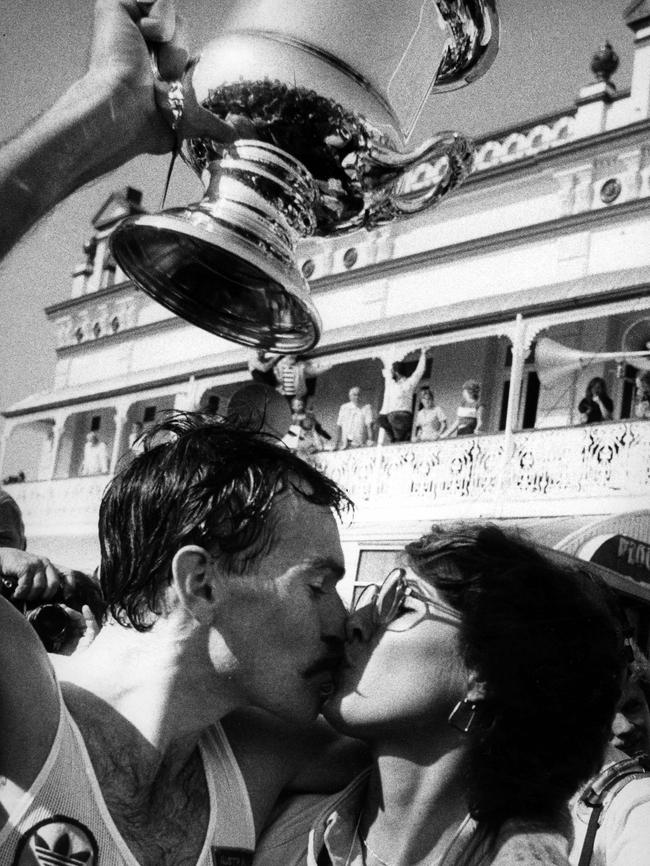
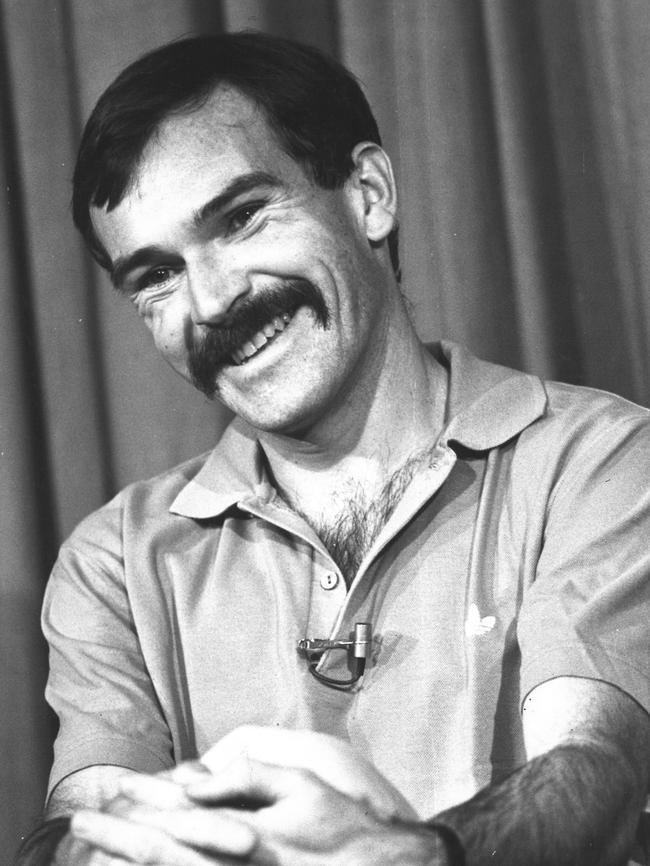
He hasn’t run a marathon in 25 years – his last was in London in 1993 – but he will never forget Brisbane.
“I remember going past the Regatta Hotel and the crowd was like an ocean of people parting in front of me,” he says. “People had been at the pub all night celebrating and were well and truly lubricated as they roared me on. When I crossed the finish line a local publican came out with a bottle of champagne. The ice bucket made a great trophy.
“To see the way South Bank was revitalised after the Games is amazing,” he says. “The same sort of thing will happen on the Gold Coast.”
Deek has spent the past 20 years practising Okinawan Goju-ryu karate and is a fourth-dan black belt, but he still runs five days a week – 5km on weekdays and up to 12km on weekends.
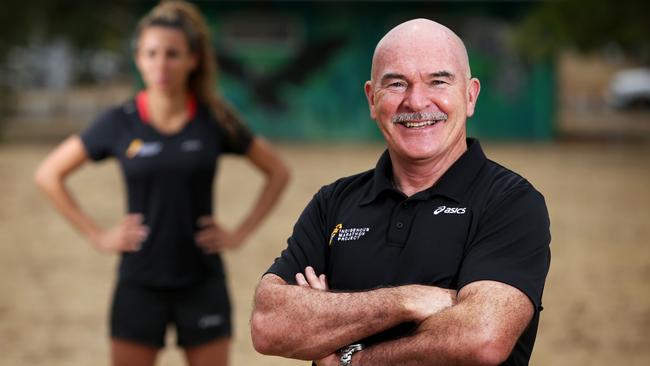
He started the Indigenous Marathon Foundation in 2009. “We’re using running to build Indigenous community leaders and promote a healthy lifestyle and address chronic disease,” he says.
“When you go for a run, not only do you get the health benefits but you get an incredible sense of achievement and accomplishment.”
Deek’s Brisbane gold medal was destroyed in the Canberra fires of 2003 but the Commonwealth Games Federation gave him a replacement.
He is proud his victory inspired a running boom.
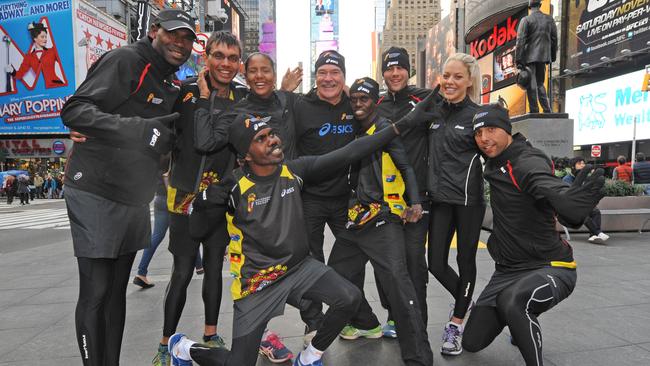
“The race was on breakfast TV which was a fairly new thing then and to have it unfold in such a thrilling way sling-shotted my profile and my career,” he says. “People still tell me that race inspired them to take up running and that’s a wonderful legacy.”
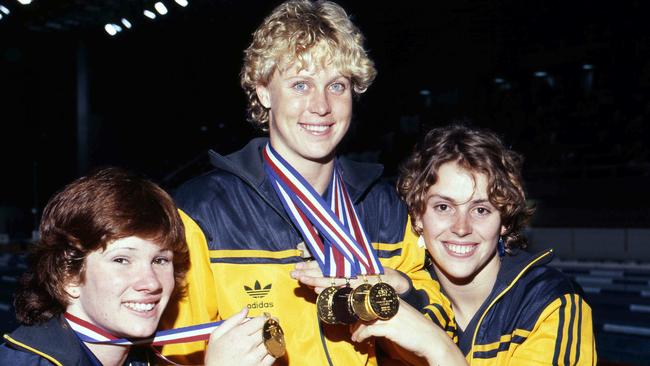
LIKE Raelene Boyle, swimmer Lisa Forrest, 54, was inspired by Eye of the Tiger as she set about winning the gold medal in the 100m and 200m backstroke as an 18-year-old, part of an astonishing swim team led by two-time world champion Tracey Wickham and including Olympic champion Michelle Ford, Lisa Curry, Jon Sieben and the “Mean Machine” of Neil Brooks, Greg Fasala, Michael Delany and Graeme Brewer.
Lisa lacked motivation going into Brisbane after missing out on a medal at the Moscow Olympics two years before.
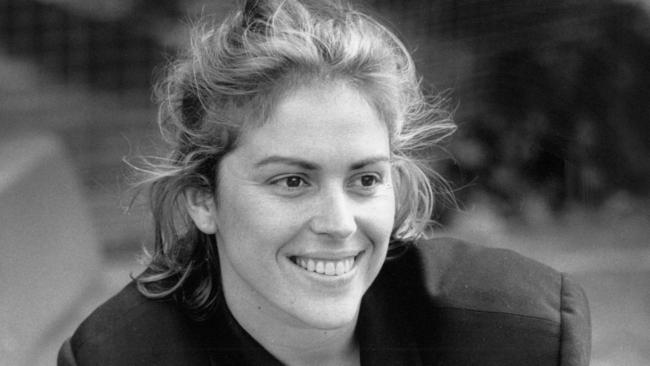
“But Rocky III came out and it was about a champion making a comeback and it really lifted me for Brisbane,” she says. “Then to march in that opening ceremony with 50,000 people cheering, put us all on cloud 9.
“I went for a swim after the ceremony and I felt like I was a stone skimming across the surface and that feeling stayed with me for the whole Games.”
Encouraged to become a sports reporter after Brisbane, Lisa broke new ground for female journalists, going on to become a popular radio host, television anchor and author.
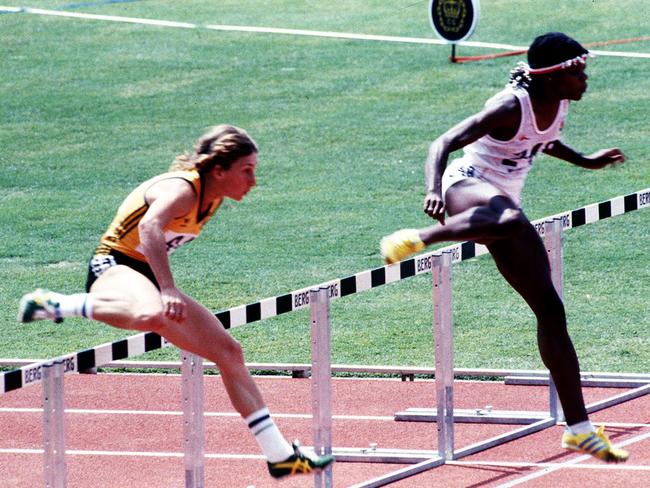
GLYNIS Nunn-Cearns, 57, is a board member on the Gold Coast 2018 Commonwealth Games Corporation, but in 1982 she was a young schoolteacher from Toowoomba with a crook ankle and the eyes of the nation upon her.
She had to watch the opening ceremony and the giant mascot Matilda winking to the crowd, on television after hurting her ankle on the eve of the Games but says she was lifted by the home crowd and her family in the stands.
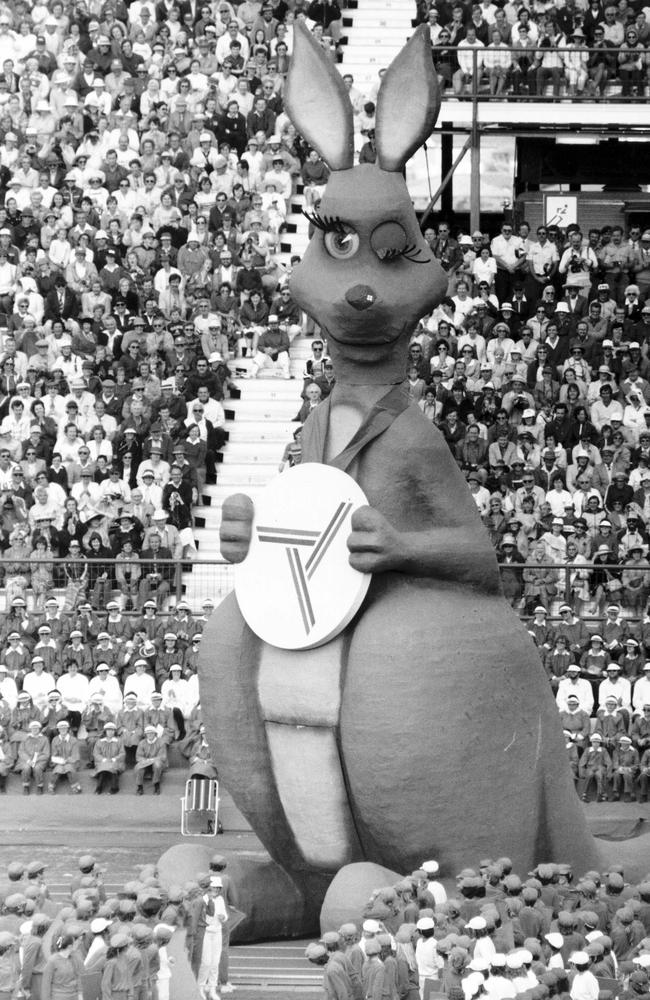
After two days of competition in the heptathlon, victory came down to the seventh and final event, the 800m.
“Judy Livermore, my great rival from England, a Canadian girl (Jill Ross-Giffen) and I all crossed the line close together and I won gold,” Glynis says. “After the competition Judy’s coach told me that if ‘we could put your heart into Judy’s body we’d have an amazing athlete’. Judy had legs to die for.”
Two years later Glynis won the Olympic heptathlon gold medal at the Los Angeles Coliseum, effectively becoming the best all-round women’s athlete in the world.
She competes in Masters athletic events today and mentors athletes on the Gold Coast at her “Nunn Better” coaching school.
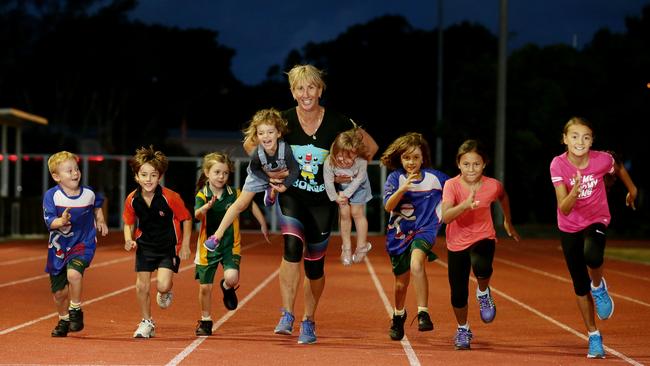
RAY Boyd, 66, who won pole vault gold in Brisbane, is also a coach and has 25-year-old pole vaulter Lisa Campbell primed for the Games.
He guided his daughter Alana to the London and Rio Olympics and gold medals at the 2010 and 2014 Commonwealth Games pole vault. Son Matt also competed in the event in Glasgow and daughter Jacinta was a star long jumper until she was flattened by chronic fatigue.
Ray and his wife, Denise, 65, were both champions of Australian athletics.
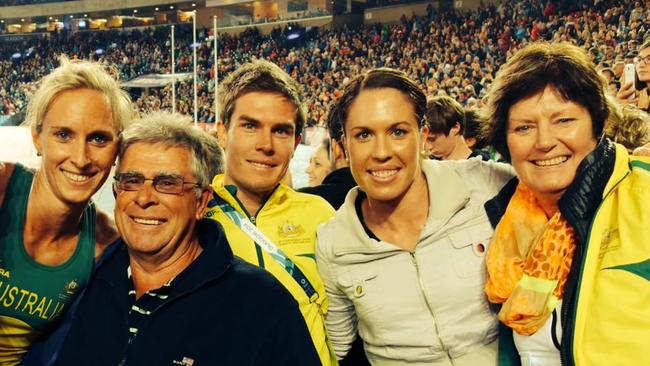
Denise won sprinting gold at the Commonwealth Games in Christchurch in 1974 and Edmonton four years later and the Boyds still catch up with old team mates including Erica Nixon, Bill Hooker and Charlene Rendina.
In Brisbane Denise took the silver medal in the women’s 4x400m, running the second leg of a star-studded team that had Leann Evans run the first leg, Debbie Flintoff, the third and Raelene Boyle the last.
Ray had competed in the Commonwealth Games since 1970 without getting his foot on the dais. At 31, he knew Brisbane was his last chance. He and Jeff Gutteridge of England and Graham Eggleton of Scotland all cleared 5.2m but Ray won gold on a countback.
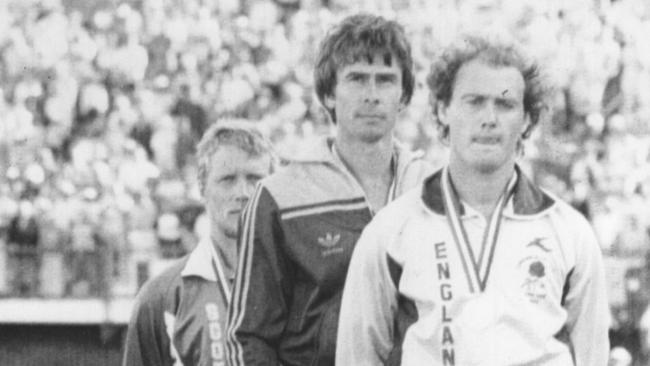
He wishes his golf game at the Headland course near his Sunshine Coast home could take off like he did that day.
“I’d been going away with the national team since I was 18 so to win a gold medal in front of an Australian crowd after all those years was a bit like getting pregnant at 45,” Ray says. “At last! Being a home games I had 90 per cent of the crowd on my side and I certainly got swept up in the euphoria. That’s how the Aussie athletes will feel on the Gold Coast.
“Denise … was a very well credentialed athlete but of course I told her my gold trumped her silver.
“We lived in Melbourne then and when we got back home I was king for a week. It was fantastic. Denise let me open all the mail for a while and I think she even put the bin out one night.”
grantlee.kieza@news.com

Originally published as ‘Deek’, Raelene Boyle, Glynis Nunn and others were household names after our 1982 Games

